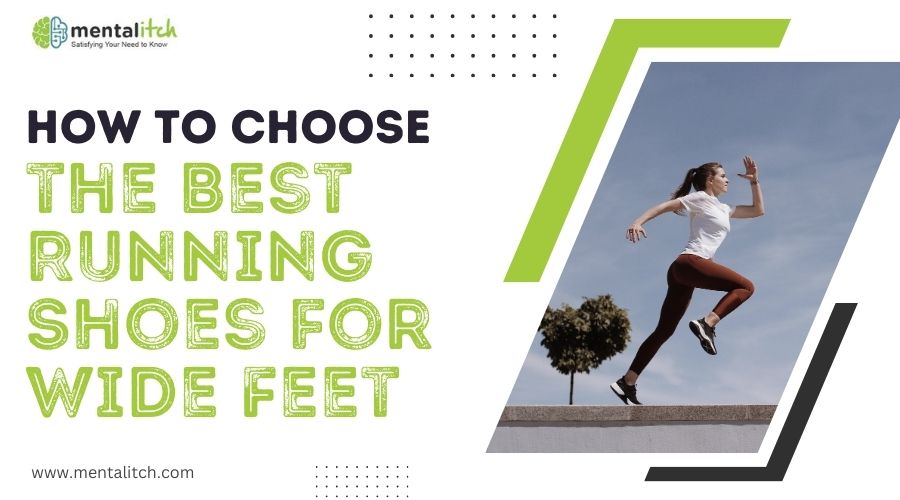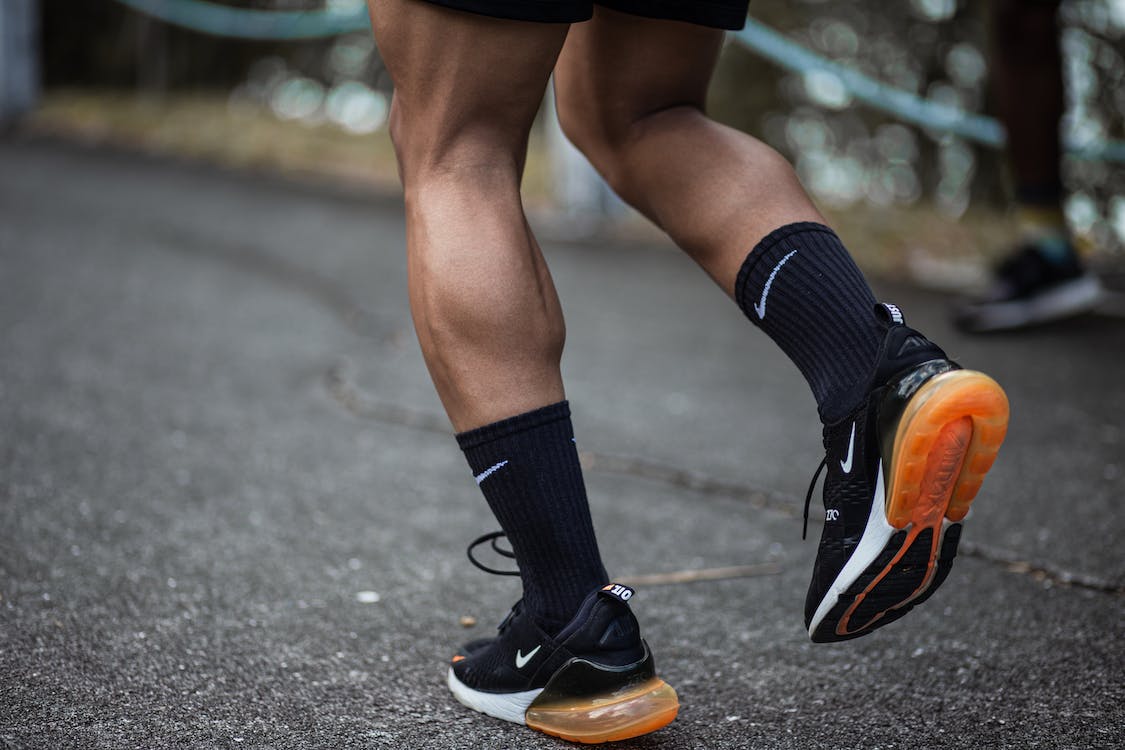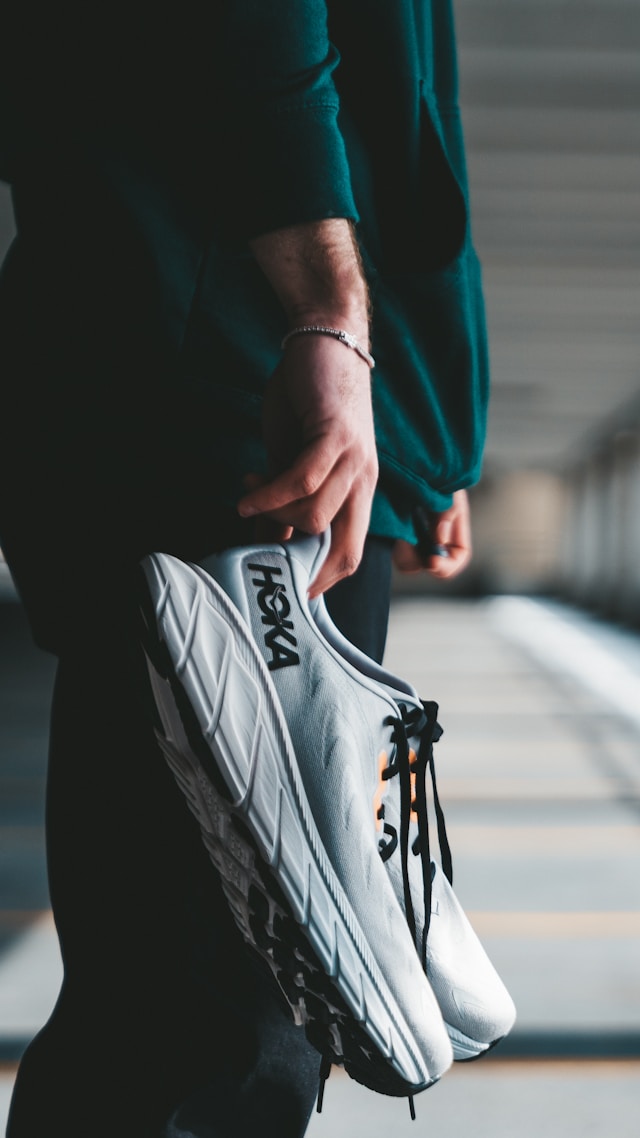Imagine you’ve just decided to take up running, but your wide feet make finding the right shoes a challenge. You’re not alone in this quest for the perfect fit.
Choosing the best running shoes for wide feet involves more than just picking the right size; you need to consider the shoe’s overall support, cushioning, and whether it’s specifically designed for wide feet. Brands like Brooks and New Balance are known for their wide options, but how do you decide which is right for you?
Keep in mind, the right pair can significantly enhance your running experience, so let’s explore what you should look out for to ensure you make an informed choice that suits your needs.
Key Takeaways
- Measure foot width and prioritize toebox comfort to prevent foot pain and ensure natural movement.
- Choose shoes with ample cushioning, roomy toe boxes, and good arch support for balanced stability and comfort.
- Select shoes based on running style and terrain to enhance support, comfort, and performance benefits.
- Consider models like Asics Gel-Kayano 29, Hoka Clifton 9, and Altra Lone Peak 7, designed for wide feet and specific running needs.
Identifying Wide Feet
To identify if you have wide feet, it’s crucial to measure your foot’s width and check for immediate comfort in the toebox area. If you’re among the 75% of runners who suffer from foot pain, it could be a sign that your current shoes aren’t providing the necessary width. Brands like Altra and Topo Athletic offer designs with a broader forefoot, catering specifically to wide feet. This feature ensures there’s ample room for toe splay, enhancing your comfort during runs.
When measuring your feet, it’s not just the length that matters; the toebox width and depth are equally important. These dimensions determine whether your feet have the space needed to move naturally. For women, wide sizes typically start at a D width, while men’s wide sizes begin at 2E. Ensuring you’re wearing the correct size can significantly reduce or eliminate foot pain.
Importance of Proper Fit
After identifying whether you have wide feet, it’s crucial to understand that a proper fit goes beyond mere measurements to ensure your running shoes don’t cause discomfort or lead to foot problems. Selecting wide running shoes with a comfortable fit isn’t just about avoiding pain; it’s about safeguarding your feet against potential issues down the line.
Here’s why ensuring a proper fit is essential:
- Roomier toe boxes provide the space your toes need to spread out, reducing the risk of blisters, calluses, and toe damage.
- Adequate arch support and stability features in wide shoes help in maintaining a proper running form, which is vital for avoiding injuries.
- Cushioning tailored for wide feet offers the necessary comfort and impact protection, contributing to a more enjoyable and pain-free running experience.
- Proper fit in length and width prevents numbness and ensures that your wide running shoes contribute positively to your running performance rather than becoming a source of foot issues.
Evaluating Comfort Levels
Evaluating the comfort levels of running shoes for wide feet is crucial, as it directly impacts your running experience and overall foot health. You’ve got to ensure that the cushioning in the midsole is ample, providing both support and shock absorption. This element is especially vital for wide feet, where the impact with the ground can otherwise lead to discomfort or injury.
When trying on shoes, pay attention to the toe box. It should be roomy, allowing for natural toe splay. This prevents cramping and discomfort, making your runs more enjoyable. Additionally, good arch support is non-negotiable. It maintains stability and alignment, essential for those with wide feet to avoid strain during a run.
It’s not just about one feature, though; the overall fit is key. Ensure there are no pressure points or tight areas that could become sources of pain. This comprehensive approach to evaluating comfort means looking at how all these elements—cushioning, roomy toe box, arch support, and overall fit—work together. Achieving the right balance will enhance your stability, comfort, and performance, making every run a step in the right direction for your foot health.
Analyzing Running Styles
Understanding your running style is crucial in selecting shoes that cater to your wide feet and enhance your running experience. Whether you’re a neutral, overpronating, or underpronating runner, your gait directly influences the type of shoe that will offer you the most support, comfort, and performance benefits. By analyzing your running style, you can narrow down the best shoe options for your wide feet, ensuring a snug yet comfortable fit that doesn’t compromise on the necessary features.
- Neutral runners might prefer shoes with more cushioning, offering a balanced level of comfort without sacrificing flexibility.
- Overpronators, who tend to roll their foot inward excessively, may benefit from stability shoes that provide additional support to prevent injury.
- Underpronators, with a gait that doesn’t roll inward enough, could find shoes with extra cushioning and flexibility to be more beneficial, helping to absorb impact more effectively.
Regardless of your running style, ensuring the shoe accommodates wide feet with ample space and comfort is essential.
Choosing the right running shoes for your wide feet and specific gait won’t only improve your running experience but also help prevent potential injuries, making every step you take a stride towards your personal best.
Considering Terrain Types
Having analyzed your running style, it’s crucial to also consider the types of terrain where you’ll be putting those wide feet to work. If your paths are often lined with rocks, roots, and mud, trail-specific running shoes are a must. The Altra Lone Peak 7, with its aggressive lugs, is designed to tackle uneven terrain, ensuring stability and grip for those with wide feet.
On the other hand, if you’re pounding the pavement, road running shoes like the Brooks Ghost 15 will serve you better. Its durable rubber outsole offers comfort on longer runs, making it a reliable option for urban landscapes.
For those who enjoy a bit of both worlds, mixed terrain running demands a versatile shoe. The Topo Athletic Ultraventure 3 stands out for its thick cushioning and gaiter attachments, catering to a variety of surfaces with ease. Similarly, the Hoka Speedgoat 5, known for accommodating wide feet, features Vibram MegaGrip for exceptional traction on trails.
Choosing the right shoe means matching its design to your preferred terrain, ensuring your wide feet get the performance and comfort they deserve, no matter where you run.
Best Brands for Wide Feet
When you’re on the hunt for running shoes that won’t squeeze your wide feet, certain brands stand out from the pack. Names like Altra, Topo Athletic, and New Balance are just a few that offer options designed with your comfort and fit in mind.
Let’s take a closer look at these brands and some sizing tips to ensure you get the perfect fit.
Wide Feet Shoe Brands
Finding the right running shoes for wide feet can be a challenge, but brands like New Balance, Brooks, HOKA, Altra, and ASICS offer a variety of options that prioritize comfort and support. These brands understand the unique needs of wide-footed runners, providing shoes with ample room in the toe box and midfoot, along with varying levels of cushioning and stability to suit different preferences.
- New Balance and Brooks are renowned for their wide shoe models that cater to a broad spectrum of running styles and pronation needs.
- HOKA and Altra emphasize innovative cushioning and support, ensuring a comfortable run for those with wide feet.
- ASICS combines stability with roominess, making their shoes a go-to for runners seeking both features.
These brands ensure you don’t have to compromise on comfort or performance.
Sizing Tips for Width
To ensure the best fit for wide feet, it’s essential to familiarize yourself with sizing nuances across leading brands like Asics, Brooks, and New Balance. Remember, men’s wide sizes start at 2E and women’s at D. Brands vary in width standards, so always specify you’re seeking wide sizes.
Asics, Brooks, and New Balance, along with Hoka, Altra, and Topo Athletic, offer shoes with roomier toe boxes, catering to the need for toe splay and minimizing foot spillover. For a proper fit, shoes should feel comfortable from the start, offering ample space for your feet.
Additionally, Altra and Topo Athletic are especially noteworthy for their wide options, embracing wider feet with their designs. Keep these sizing tips in mind when shopping for running shoes to ensure a comfortable run.
Shopping Tips
When shopping for running shoes tailored to wide feet, it’s crucial to start by examining the available width sizes, such as D for women and 2E for men. This initial step ensures you’re looking at shoes designed to accommodate a wide foot. Remember, the right fit should feel comfortable right off the bat, without any tightness or looseness, to effectively support wider feet.
It’s wise to get your foot measured at a running store. This way, you can pinpoint the best width and size for your wide feet, ensuring you’re not just guessing. Brands like Altra and Topo Athletic are renowned for their wide shoes, offering a wide and extra wide toe box that provides ample room for their toes. This design is ideal for those who need a wide fit to avoid cramped toes during runs.
When trying on shoes for wide feet, don’t forget to remove the sockliner to check for foot spillover. You’re aiming for about a thumbnail’s worth of space in the toe box for optimal comfort and toe splay. Always opt for wide versions of running shoes or models specifically available in wide fits to ensure the best match for your wide feet.
Trusting Your Selection
Considering feedback from fellow wide-footed runners can significantly enhance your confidence in the running shoes you’ve chosen. When you’ve sifted through countless options and finally settled on a pair, it’s the personal experiences and endorsements from others with wide feet that reassure you’ve made a sound decision. These shared insights often highlight the importance of:
- Finding shoes that aren’t only comfortable but also accommodating, ensuring a roomier fit that doesn’t compromise on stability.
- Opting for brands known for their wide-foot-friendly designs, such as Asics, Brooks, New Balance, Hoka, Topo Athletic, and Altra, which cater specifically to the unique needs of wide feet.
- Ensuring there’s enough room for toe splay and movement, which is crucial for preventing discomfort or pain during your runs.
- Prioritizing the overall fit and comfort of the shoe, as this directly impacts your running experience and ability to maintain a healthy, active lifestyle without the worry of foot pain.
Conclusion
So, you’ve got wide feet and you’re hunting for the perfect running shoes. Remember, it’s all about finding that snug fit, ample comfort, and the right support for your stride and terrain. Stick to trusted brands like Brooks, Saucony, HOKA, and New Balance, which cater to wide feet with their spacious designs. Dive into their top models, and don’t skimp on trying them out.
Trust your gut; when you find the pair that feels right, you’ll know. Happy running!



